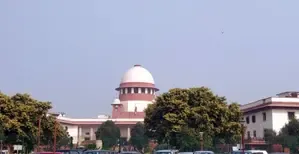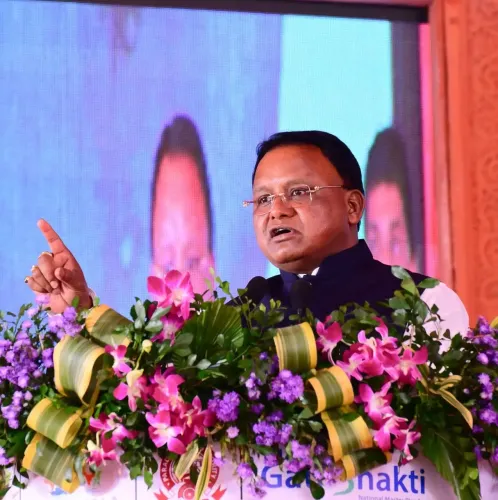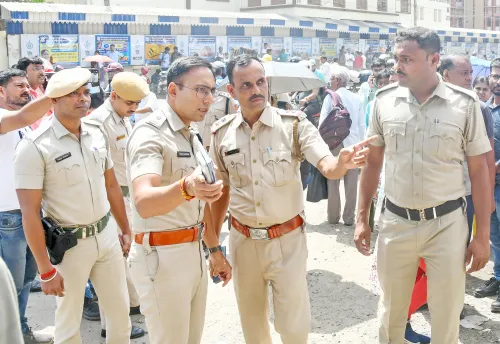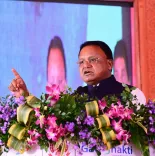Should a National Committee Govern Temples Across India?

Synopsis
Key Takeaways
- Akhil Bhartiya Mandir Parishad files PIL for national committee.
- Addresses chronic issues of temple mismanagement.
- Seeks to uphold Hindu religious sentiments.
- Citations from Constitutional Articles 25 and 26.
- Potential impacts on devotee access and temple administration.
New Delhi, Sep 7 (NationPress) The Akhil Bhartiya Mandir Parishad, a trust committed to the welfare of the Hindu community, has initiated a public interest litigation (PIL) in the Supreme Court aiming to establish an All-India Management Committee to supervise temple governance nationwide.
The petition highlights that temples—whether administered by the Central government, state authorities, or private groups—are “severely plagued by mismanagement, maladministration of funds, and poor upkeep.” It asserts that negligence in financial allocation and utilization has compromised “the sanctity and proper functioning of these sacred institutions,” adversely affecting the sentiments of devotees who regularly visit in devotion to the Hindu Gods and Goddesses.
Filed through advocate Rakesh Dahiya, the PIL emphasizes that safeguarding the religious identity and ensuring the welfare of the Hindu community is not just an individual duty but “a constitutional obligation upon the government in power.” Citing Articles 25 and 26 of the Constitution, the petitioner argues that the government must protect the religious sentiments of Hindus against infringement by both the State and individuals from other religious groups.
The PIL contends that existing statutory frameworks “have failed miserably in managing and maintaining our temples.” It requests the formation of an All-India Management Committee tasked with overseeing administration, finances, and devotee welfare at all temples across the nation.
“Its objective would be to ensure transparency, accountability, and the welfare of temples, while preserving their sanctity and religious significance,” the PIL states. It emphasizes that the “committee’s aim should be to deliver a hassle-free and spiritually fulfilling experience for every devotee, regardless of their social or economic background.”
The PIL refers to a legal notice issued by the Akhil Bhartiya Mandir Parishad on October 3, 2023, to the Mahakaleshwar Jyotirlinga Management Committee in Ujjain, after discovering that “the aforementioned committee is charging exorbitant fees from devotees visiting the Shree Mahakaleshwar Temple, which has effectively limited access to religious services for economically disadvantaged sections of society.”
Furthermore, the petition cites previous tragedies, such as the 2022 Vaishno Devi stampede and the fire incident during Holi celebrations at Ujjain’s Mahakaleshwar temple, as evidence of “gross negligence” by temple committees. It also references the Tirupati Laddu controversy as another example of “maladministration by the State Government,” which ultimately disrespects the feelings of followers and pilgrims. The plea argues that the establishment of such a central committee would “provide much-needed relief to temples and ensure their governance aligns with the ethos of Hinduism, free from external interference, and safeguarded against mismanagement.”
According to the causelist available on the apex court's website, a Bench comprising Chief Justice of India (CJI) BR Gavai and Justices K. Vinod Chandran and Atul S. Chandurkar will hear the case on Monday (September 8).









